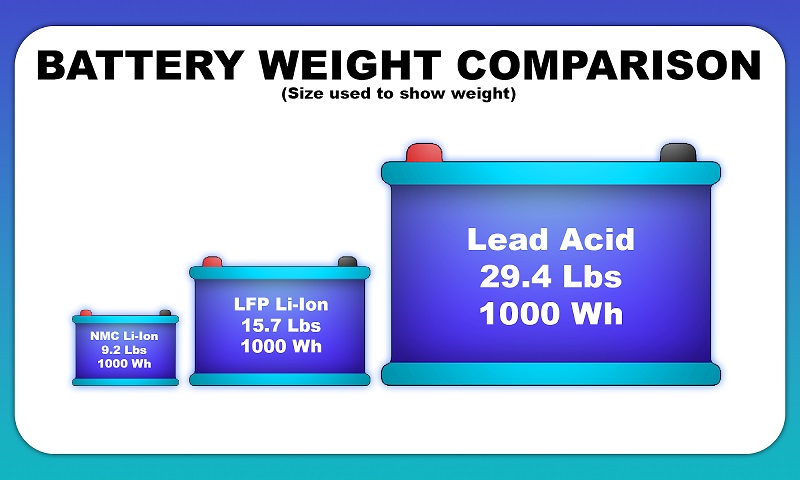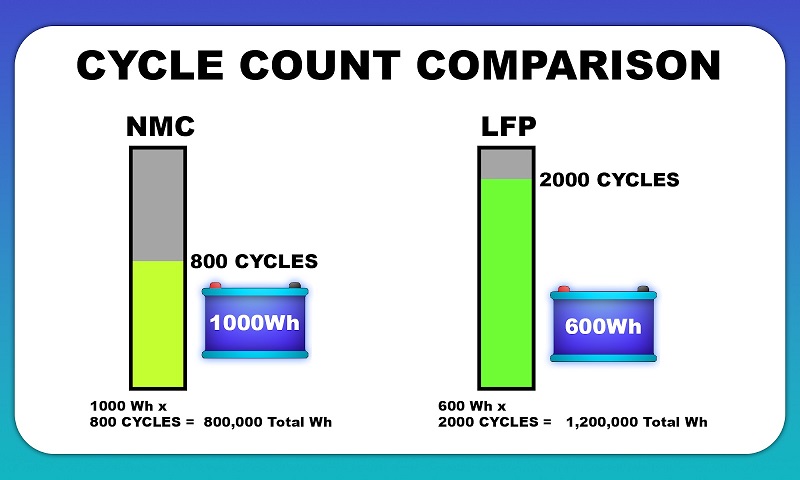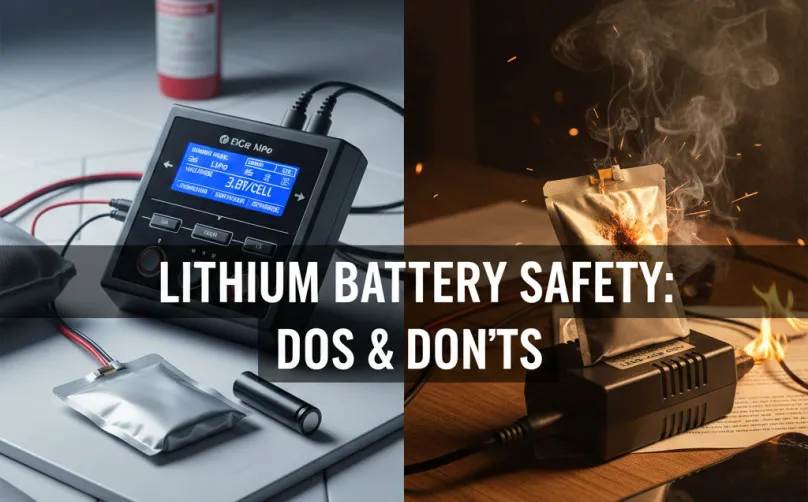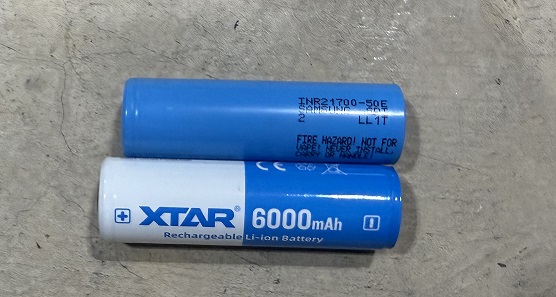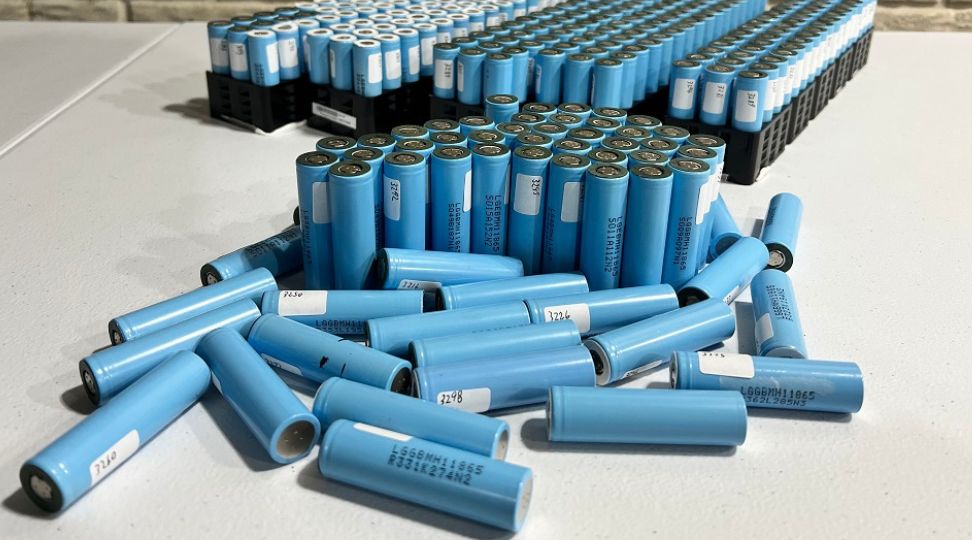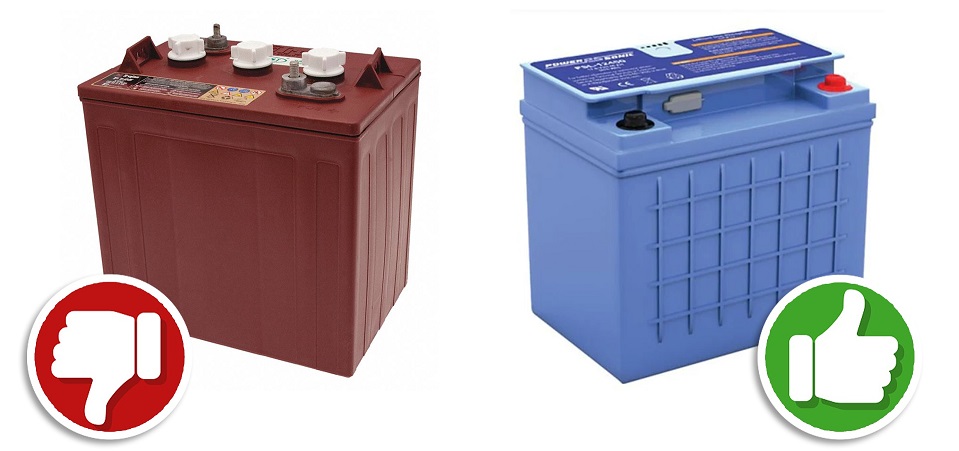
Which Battery Lasts Longer Lead-acid Or Lithium-ion?
Table of Contents
Lithium-ion batteries last significantly longer than lead-acid batteries. They have much higher energy density, storing about six times more energy per volume and three and a half times more energy per weight compared to lead-acid batteries.
Also, lithium-ion batteries can withstand several thousand charge-discharge cycles and deliver up to 80% of their total energy without damage, whereas lead-acid batteries typically manage only several hundred to a thousand cycles if limited to 50% discharge, and much fewer if fully depleted. Though lead-acid batteries are cheaper initially, their shorter lifespan and lower efficiency make lithium-ion batteries more cost-effective in the long run.
Which Battery Is Better, Lead-acid Or Lithium-ion?
When comparing lithium ion vs lead acid, the choice is clear. Pound to pound, watt for watt, and dollar for dollar, lithium-ion lasts longer than lead acid in almost every application. Lithium-ion batteries are much more space efficient than lead-acid batteries. For a given volume, lithium-ion battery chemistry can store about 6 times the amount of energy as lead acid. This is because lead acid energy density tops out at just under 100 watt-hours per liter. Lithium-ion batteries, on the other hand, can store up to around 700 watt-hours per liter.
Also, lithium-ion batteries are much more weight efficient than lead-acid batteries. For a given amount of pounds, lithium-ion battery chemistry can store about 3 and a half times the amount of energy as lead acid. This is because lead acid batteries are only about 75 watt-hours per kilogram. In contrast, lithium-ion batteries can be as high as 270 watt-hours per kilogram.
This article mainly discusses which chemistry lasts longer, we also did a full guide on which is better lead acid or lithium-ion.
Lead-Acid VS Lithium-Ion: Energy Density and Efficiency
Energy density and efficiency are the fundamental parameters that determine a battery's capacity and longevity. Lead-acid batteries have been the de facto standard for many years, especially in automotive and industrial applications. This is because of their reliability and low upfront cost. These older batteries, however, have a far lower energy density compared to modern solutions such as lithium-ion batteries. This means that lead acid batteries will always be larger and heavier than a lithium-ion battery that stores the same amount of energy.
Lithium-ion batteries have a much higher energy density and are way more efficient at storing and releasing that energy. This is, after all, why this battery technology has seen widespread adoption in portable electronics and electric vehicles. In fact, many things can’t even exist without lithium-ion batteries. Imagine a smartphone with a lead-acid battery. You can't because it's not possible. Chances are, without lithium-ion technology, you wouldn’t be reading this.
So, Which Battery Last Longer, Lead Acid Or Lithium Ion?
One of the most important factors to consider when doing a battery lifespan comparison between lead acid and lithium ion is the number of charge-discharge cycles a battery can withstand before its capacity drops past a certain threshold. Lead-acid batteries typically have a cycle life of several hundred to a thousand cycles, but that is only if you pull no more than 50% of the energy out of the battery. If you go any lower than that, a lead acid battery will only last a few dozen cycles. If you ever fully deplete a lead acid battery, you will be able to count all of your charge cycles on one hand.
Lithium-ion batteries, on the other hand, are able to withstand several thousand charge cycles under the right conditions and if using the right chemistry. Also, a lithium-ion battery is able to deliver up to 80% of the total energy stored within before causing any damage to the battery. An added perk is the fact that lithium-ion batteries require a battery management system the BMS among other things prevents the battery from being over-discharged, extending its life.
What is The Advantage of a Lead-Acid Battery Over Lithium?
Lead-acid batteries have a lower upfront cost. That is literally their only benefit, and really, it’s not even a true benefit. Lead acid batteries have a shorter lifespan and are much less efficient to charge and discharge compared to lithium-ion. Also, they require regular maintenance to even maintain those figures, which are already pretty bad. Lithium batteries are more expensive up front, but they have a lower TCO (Total Cost of Ownership) by being so much more efficient and lasting so much longer than their lead-acid counterparts.
Advantages of Lithium-Ion Batteries
Lithium-ion batteries are more expensive upfront, but they have a lower Total Cost of Ownership (TCO) due to their superior efficiency and longer lifespan. They are characterized by:
Higher Energy Density: Storing more energy in less space.
Higher Efficiency: Better at charging and discharging.
Longer Cycle Life: Lasting well over a thousand cycles.
Low Maintenance: Requiring little to not upkeep.
Safety Features: Often include a BMS to prevent over-discharge and extend battery life.
Which Battery Has The Longest Lifespan?
When it comes to which battery lasts longer, lead acid or lithium ion, lithium ion batteries by far have the longest lifespan compared to any other battery technology. These batteries have an extremely long lifespan due to their very low self-discharge, the lack of memory effect and a depth of discharge of up 80%. Lead acid is a bit easier to manage as they don't need a BMS or anything like that to remain safe, but they have the highest overall cost of ownership and lowest overall lifespan.
